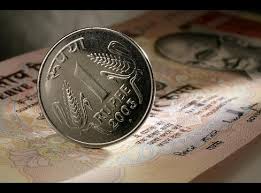SEBI Issued Stricter KYC Norms
- The Securities and Exchange Board of India (SEBI) tightened its Know Your Client (KYC) norms on issue of Participatory-Notes (P-Notes), to curb misuse of the investment route used by foreign investors not registered in India.
- Under the new norms, all the users of Offshore Derivative Instruments (ODIs), popularly known as P-Notes would have to follow Indian KYC and Anti Money Laundering (AML) regulations, irrespective of their jurisdictions.
- The ODI issuers will be required to file suspicious transaction reports, if any, with the Indian Financial Intelligence Unit, in relation to the ODIs issued by them.
- The ODI issuers will be required to put in place necessary systems and carry out a periodical review and evaluation of its controls, systems, and procedures with respect to ODIs.
India now Third Largest Oil Consumer
- India has surpassed Japan to become the world’s third-largest oil consumer, with its oil demand galloping 8.1% in 2015, according to BP Statistical Review of World Energy released on June 7, 2016.
- India’s demand growth surpassed China’s 6.3% expansion. The US oil consumption grew 1.6%, which accounts for 19.7% of the total world pie of 95 million bpd in 2015.
- The South Asian nation, now Asia’s second largest oil consumer, accounted for 4.5% of daily global oil demand last year, marginally higher than Japan’s 4.4%, which was equivalent to 4.15 million barrels.
- India Ranked Second 0n GRD Index of Ease of Doing Business
- According to 2016 Global Retail Development Index (GRDI), which ranks top 30 developing countries for retail investment worldwide, placed india at second rank on June 6, 2016.
- Earlier, India was at 15th position. GRDI is released by AT Kearney, a Chicago-based consultancy.
- The Index analyses 25 macroeconomic and retail-specific variables to help retailers devise successful global strategies to identify emerging market investment opportunities.
- India’s high ranking is because of Gross Domestic Product (GDP) growth, improved ease of doing business, and better clarity regarding Foreign Direct Investment (FDI) regulations etc.
Union Government Hiked MSP of Pulses
- The Union government on June 1, 2016 increased the Minimum Support Price (MSP) of pulses by up to Rs 425 per quintal for this year to boost output and check price rise, while making a modest raise of Rs 60 in paddy MSP to Rs 1470 per quintal.
- Rs 425 for pulses and Rs 100-200 per quintal for oilseeds growers over and above the MSP to encourage domestic production and check prices.
- The increase in MSP for pulses and oilseeds will reduce highly import dependence for these commodities. Edible oils, followed by pulses, are the top two agri-commodities imported by the country to meet the domestic consumption.
Banking




